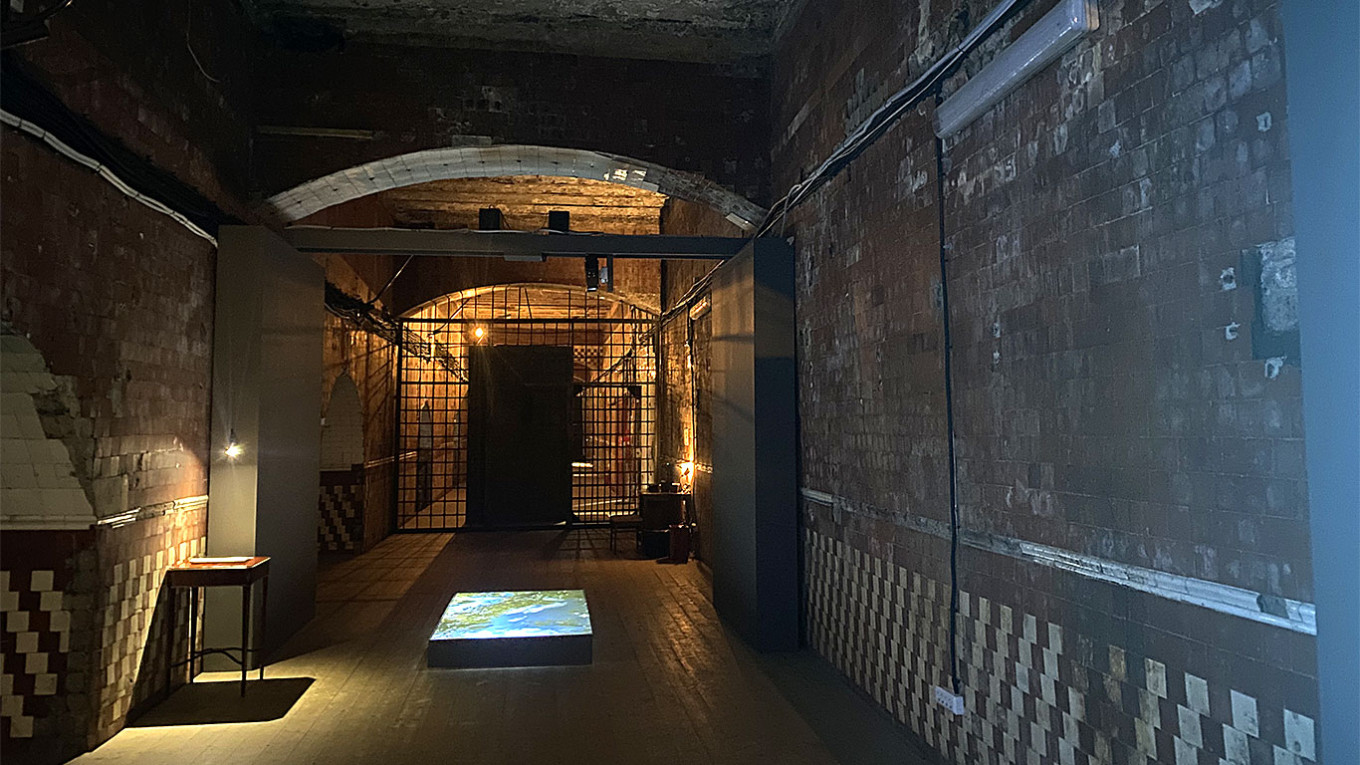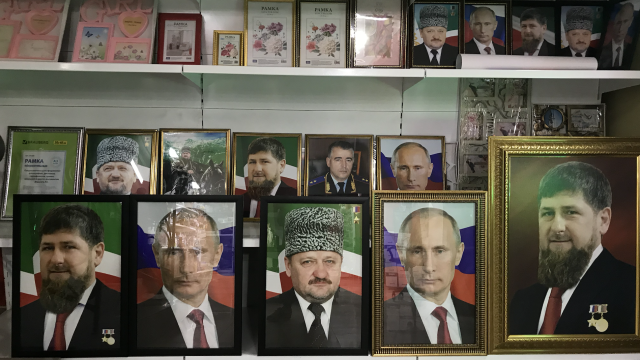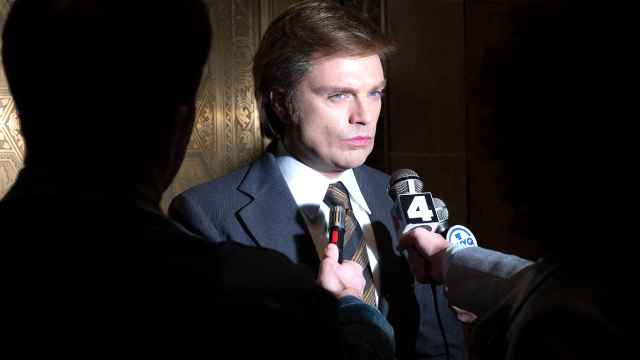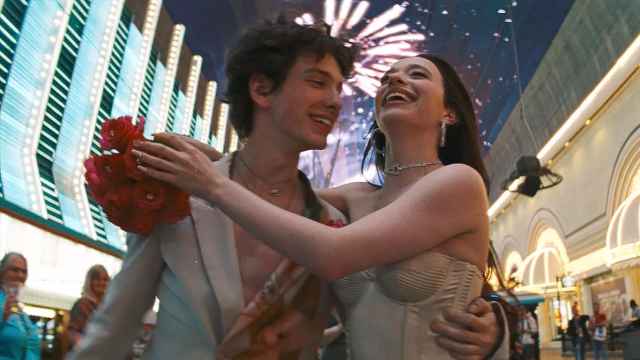Potato conspiracies, Brezhnev's funeral, and the Soviet Union are just a few of the topics covered in a video art exhibition in Moscow called Based on Real Events.
The exhibition — the largest of its kind in recent years — showcases more than 30 videos that touch on politics, social issues, and everyday life. It takes place in Winzavod, which was founded in 2007 as one of the first private gallery spaces to exhibit cutting-edge art.
The venue, a former wine factory, provides visitors blankets to wrap themselves in before they descend into the chilly and dimly lit maze-like basement exhibition space. The video screens are the only source of light. There were only a few people at the exhibition and almost all the halls were empty, contributing to the eerie atmosphere. A note on the welcoming board explains: "The format chosen for the exhibition raises a fundamental question — what constitutes reality and real events?"
Descriptions of the exhibits are presented like police reports with information about the author, including education, awards, and a description of the installation.
The videos vary in length. Some focus on a single detail, such as one video that just displays the logo of the well-known Russian supermarket Pyaterochka. Other videos are under 10 minutes long, including one that shows a train journey across Russia from Moscow to Vladivostok.
Longer films are up to an hour, although it’s hard to watch them from start to finish since they run on a loop. And although some videos have headphones, most do not, so the soundtracks from videos are loud and overlapping.
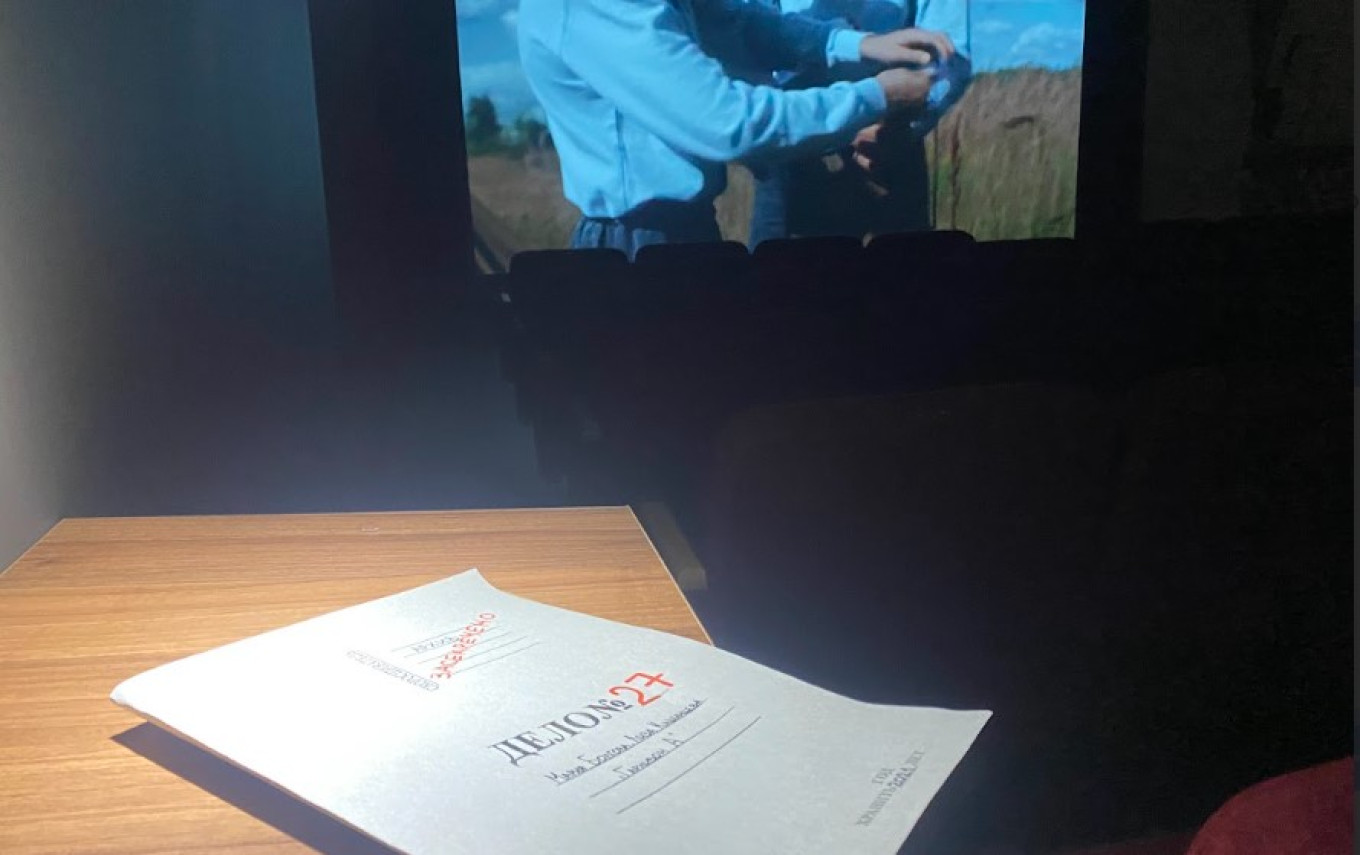
Everything about the show is designed to plunge visitors into the cacophony and confusion of “real events.” It takes them from simple tales about train travels in Russia and images from the U.S.S.R. to videos showing the murders of a feminist activist, a journalist, a rapper, and an art curator that are like true-crime documentaries with investigators' clinical commentary. One of the videos even briefly shows two girls kissing, shocking to see in today's Russia after the new anti-LGBTQ+ laws.
One of the first exhibits features a film based on letters from Soviet children describing the Soviet Union. A woman's voice narrates a scene depicting a building destroyed in World War II, reflecting on the aftermath of the war: "In this country [USSR], people believed that there would be more wars.”
The collapse of the Soviet Union is signified by an image from the ballet "Swan Lake" that was shown on all the television channels during the 1991 coup attempt. "Perhaps this country still exists," a female voice comments during the ballet performance.
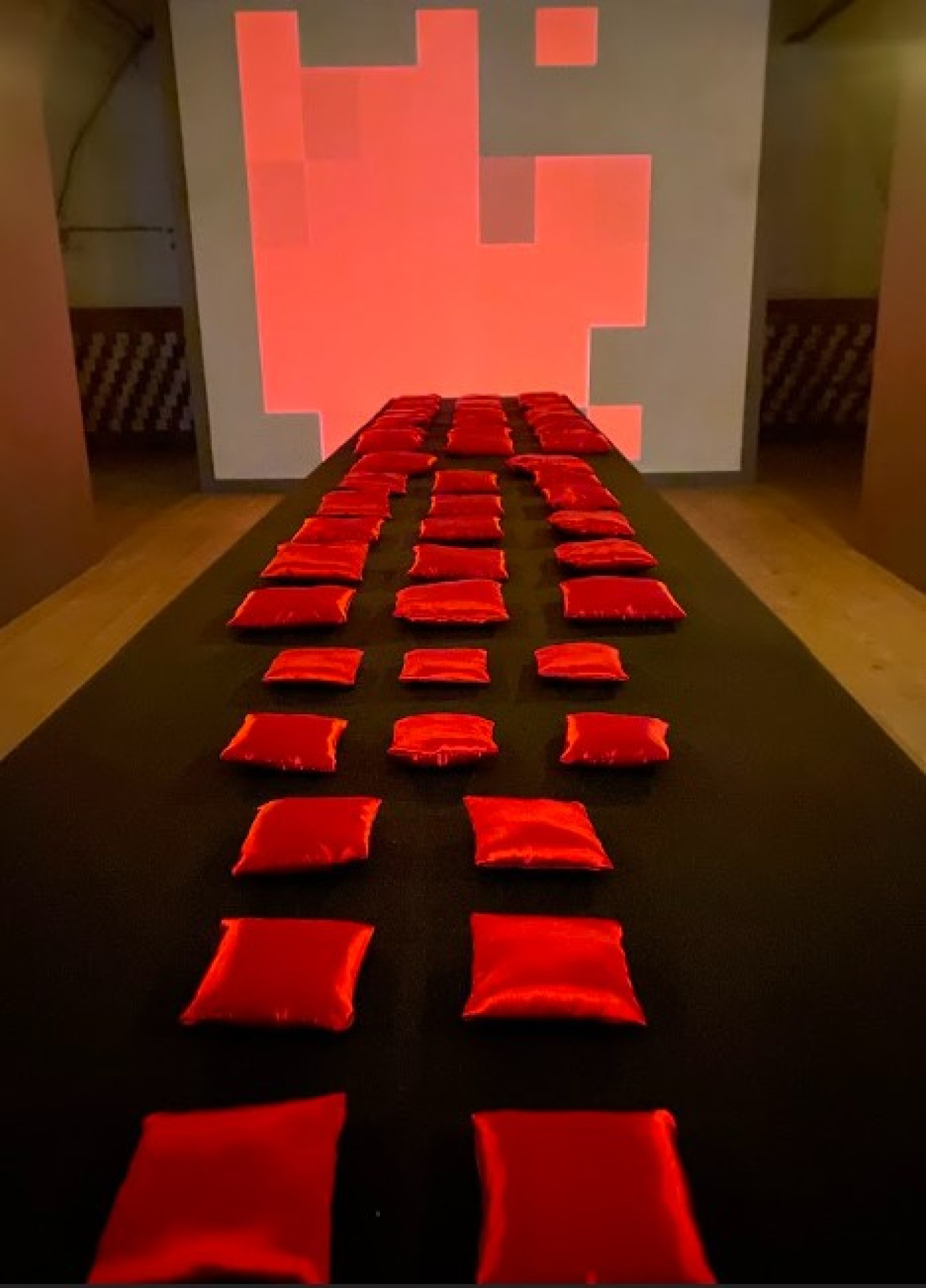
Another video is about Leonid Brezhnev's funeral. Abstract red squares and rectangles move across the screen while the voice of a Soviet radio anchor speaks about the funeral. The room where the video is shown resembles a crypt, with a table shaped like a coffin in the center. The anthem of the U.S.S.R. — the same music as the current Russian national anthem — plays in the background.
Towards the end of the installation, there's a project titled “Garrison A” showing a children's camp where the kids play war games. In one game they act the roles of characters in Boris Vasilyev’s novel “The Dawns Are Quiet Here,” which tells the tragic fate of female soldiers during World War II.
At the end of the exhibition is a video with AI-generated content that presents conspiracy theories involving potatoes. The narrator makes outlandish claims about potatoes, suggesting they can control time, influence health, and possess magical qualities and extraordinary powers.
Like the rest of the show, this, too, is apparently based on real events.
More information on the show can be found here.
A Message from The Moscow Times:
Dear readers,
We are facing unprecedented challenges. Russia's Prosecutor General's Office has designated The Moscow Times as an "undesirable" organization, criminalizing our work and putting our staff at risk of prosecution. This follows our earlier unjust labeling as a "foreign agent."
These actions are direct attempts to silence independent journalism in Russia. The authorities claim our work "discredits the decisions of the Russian leadership." We see things differently: we strive to provide accurate, unbiased reporting on Russia.
We, the journalists of The Moscow Times, refuse to be silenced. But to continue our work, we need your help.
Your support, no matter how small, makes a world of difference. If you can, please support us monthly starting from just $2. It's quick to set up, and every contribution makes a significant impact.
By supporting The Moscow Times, you're defending open, independent journalism in the face of repression. Thank you for standing with us.
Remind me later.


